More From News
UIII Builds a Bridge to Costa Rica
February 26, 2026
UIII Strengthens Its Academic Resources with Read Japan Project
February 25, 2026
October 7, 2025
Contributor: Supriyono | Photo: Achmad Jatnika
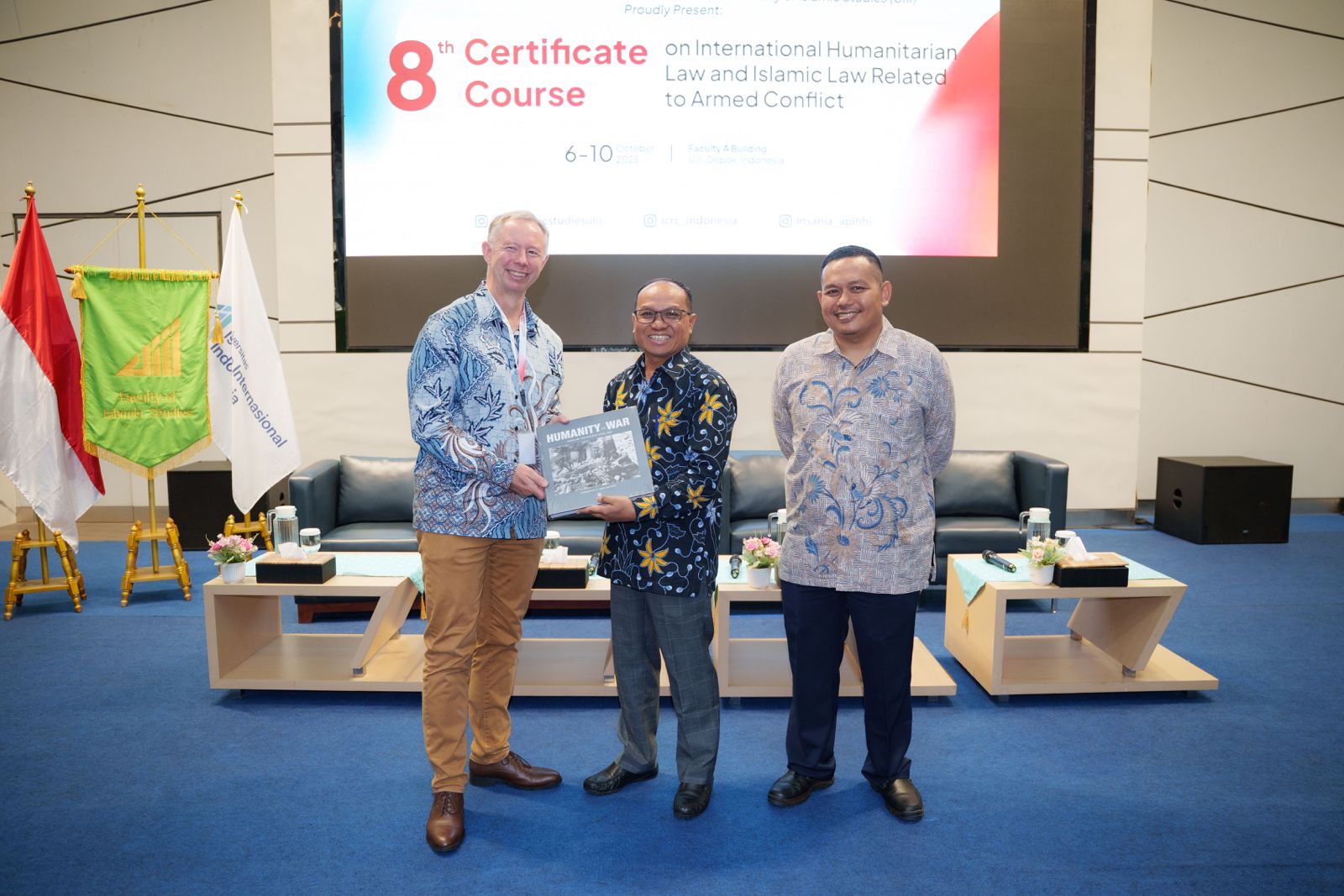
The UIII Faculty of Islamic Studies, in collaboration with the International Committee of the Red Cross (ICRC) Jakarta and INSANIA, conducted the 8th Certificate Course on International Humanitarian Law (IHL) and Islamic Law Related to Armed Conflict from October 6 to 10, 2025, at the UIII Campus in Depok, West Java. The program brought together academics, researchers, and students from across Indonesia and abroad to explore the intersections of humanitarian principles and Islamic legal thought.
In his welcoming speech, Prof. Yanwar Pribadi, Dean of the Faculty of Islamic Studies at UIII, expressed his appreciation for the continued partnership among UIII, ICRC, and INSANIA in advancing humanitarian studies within Islamic education. He emphasized that the program reflects Indonesia’s growing engagement in global peace and humanitarian initiatives and UIII’s role in supporting that mission through scholarship and dialogue.
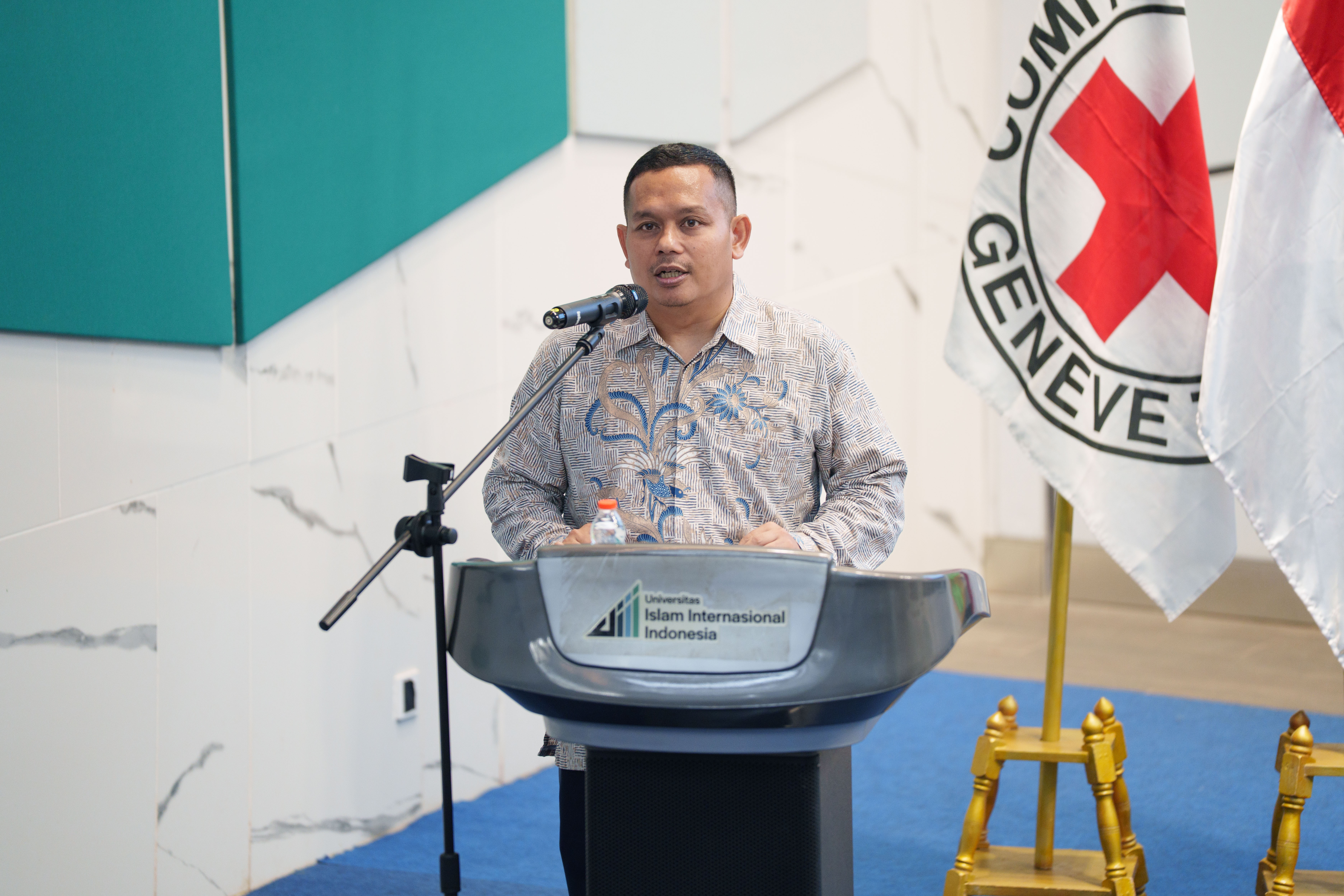 “This partnership is crucial because it highlights the importance of Indonesia’s active role in global diplomacy and humanitarian affairs,” said Prof. Yanwar. “Through this course, we hope our students and faculty members gain a deeper understanding of international humanitarian law and Islamic law related to conflict, and how these perspectives can contribute to peaceful solutions in the modern world.”
“This partnership is crucial because it highlights the importance of Indonesia’s active role in global diplomacy and humanitarian affairs,” said Prof. Yanwar. “Through this course, we hope our students and faculty members gain a deeper understanding of international humanitarian law and Islamic law related to conflict, and how these perspectives can contribute to peaceful solutions in the modern world.”
Prof. Yanwar also noted the growing diversity of the participants, which this year includes postgraduate students from UIII alongside international participants from Nigeria, Pakistan, and other countries. He added that the program serves as an important avenue for strengthening cooperation between Islamic higher education institutions and international humanitarian organizations, and he pointed to UIII alumni who have continued their careers in global institutions such as the ICRC as a testament to the value of such engagement.
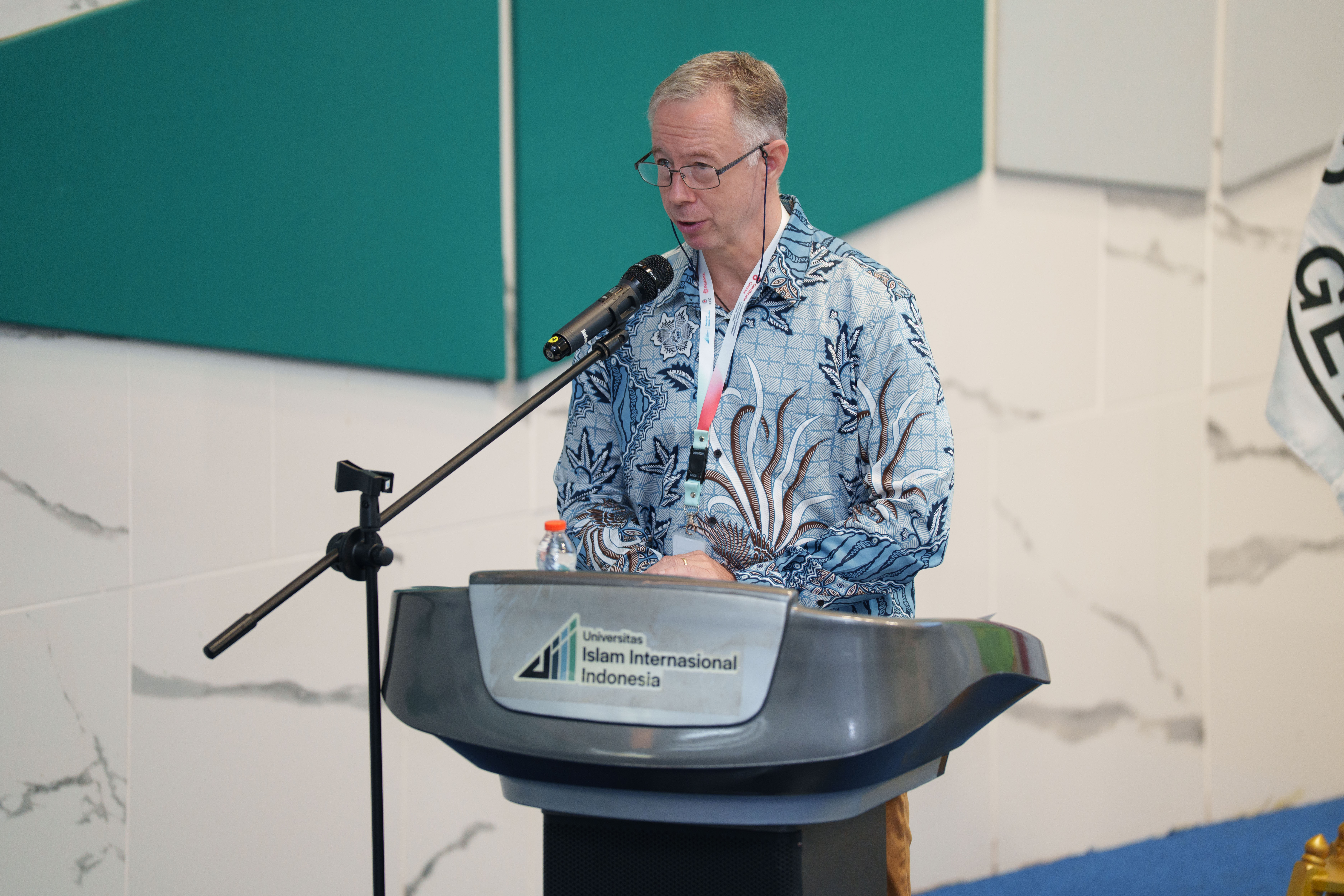 Representing the ICRC, Mr. Martin de Boer, Head of the Regional Delegation for Indonesia and Timor-Leste, conveyed his gratitude for UIII’s collaboration and reaffirmed the organization’s long-standing commitment to humanitarian education.
Representing the ICRC, Mr. Martin de Boer, Head of the Regional Delegation for Indonesia and Timor-Leste, conveyed his gratitude for UIII’s collaboration and reaffirmed the organization’s long-standing commitment to humanitarian education.
“This marks the eighth edition of the certificate course conducted in Indonesia since 2015, and we are pleased to welcome participants from seven nationalities — Indonesia, Nigeria, Pakistan, Afghanistan, the Philippines, Gambia, and Malawi,” he said. “The ICRC is dedicated to promoting respect for humanitarian law as part of our global mandate, and this course exemplifies how academic partnerships can help translate legal and ethical principles into practical humanitarian action.”
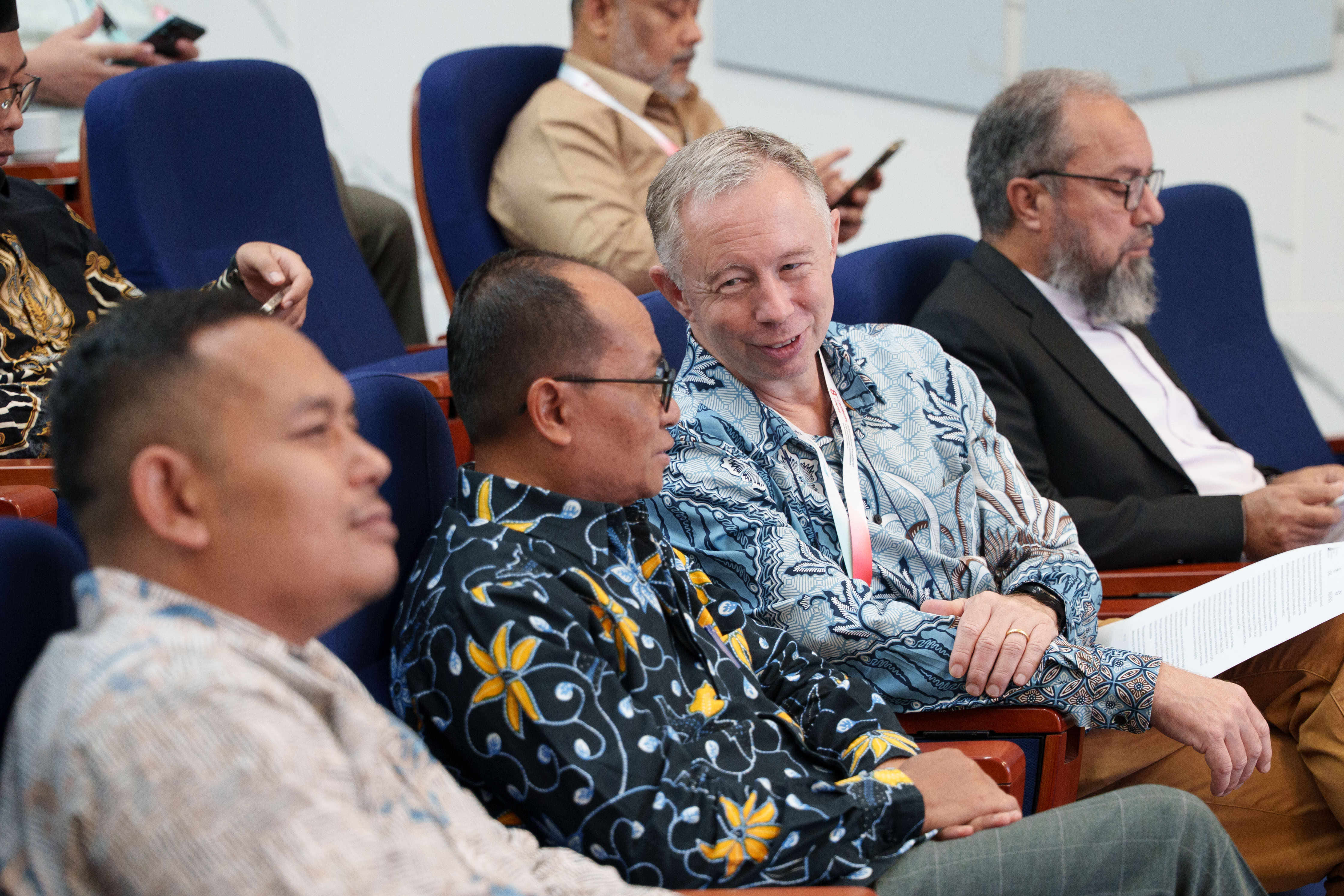 Mr. de Boer reflected on the ICRC’s history of engagement with scholars and religious leaders around the world to strengthen the moral and cultural foundations of humanitarian law. He emphasized that the convergence of Islamic teachings and international humanitarian law offers a powerful framework to address the moral challenges of modern warfare.
Mr. de Boer reflected on the ICRC’s history of engagement with scholars and religious leaders around the world to strengthen the moral and cultural foundations of humanitarian law. He emphasized that the convergence of Islamic teachings and international humanitarian law offers a powerful framework to address the moral challenges of modern warfare.
“Our shared humanity is being tested as never before, from Gaza to Sudan, Myanmar to Ukraine,” he said. “This program is not merely about studying legal texts, but about bridging academic discourse with real-world humanitarian challenges and nurturing a shared commitment to protect human dignity.”
Meanwhile, Prof. Jamhari, Rector of UIII, highlighted that hosting this international program aligns with UIII’s mission as a global platform for dialogue, diversity, and peacebuilding. With students from 92 countries, UIII stands as one of Indonesia’s most international academic communities.
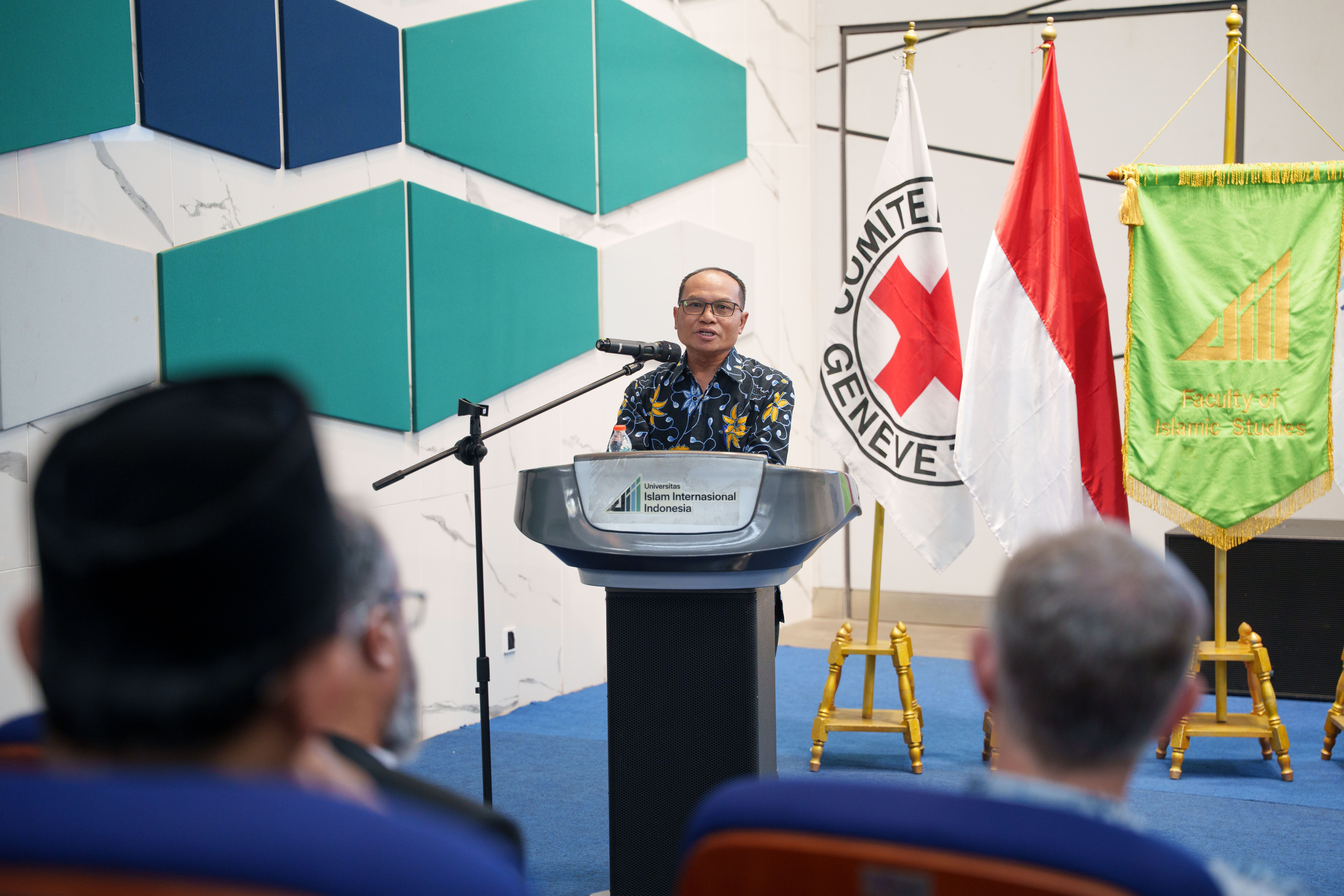 “We are proud to conduct this important course at UIII, as it reflects our commitment to advancing a moderate and inclusive understanding of Islam in global contexts,” he said. “The study of humanitarian law, both international and Islamic, is vital in addressing conflicts that still undermine human dignity. It is our shared moral responsibility to continue these discussions and build a more humane world.”
“We are proud to conduct this important course at UIII, as it reflects our commitment to advancing a moderate and inclusive understanding of Islam in global contexts,” he said. “The study of humanitarian law, both international and Islamic, is vital in addressing conflicts that still undermine human dignity. It is our shared moral responsibility to continue these discussions and build a more humane world.”
Prof. Jamhari also mentioned UIII’s growing partnerships with international institutions and governments, including scholarship programs supported by the Netherlands, Norway, and Germany, which provide opportunities for students from conflict-affected regions such as Afghanistan and parts of Africa to study at UIII. He underscored that such initiatives embody the university’s spirit of inclusivity and its dedication to promoting understanding across cultures and faiths.
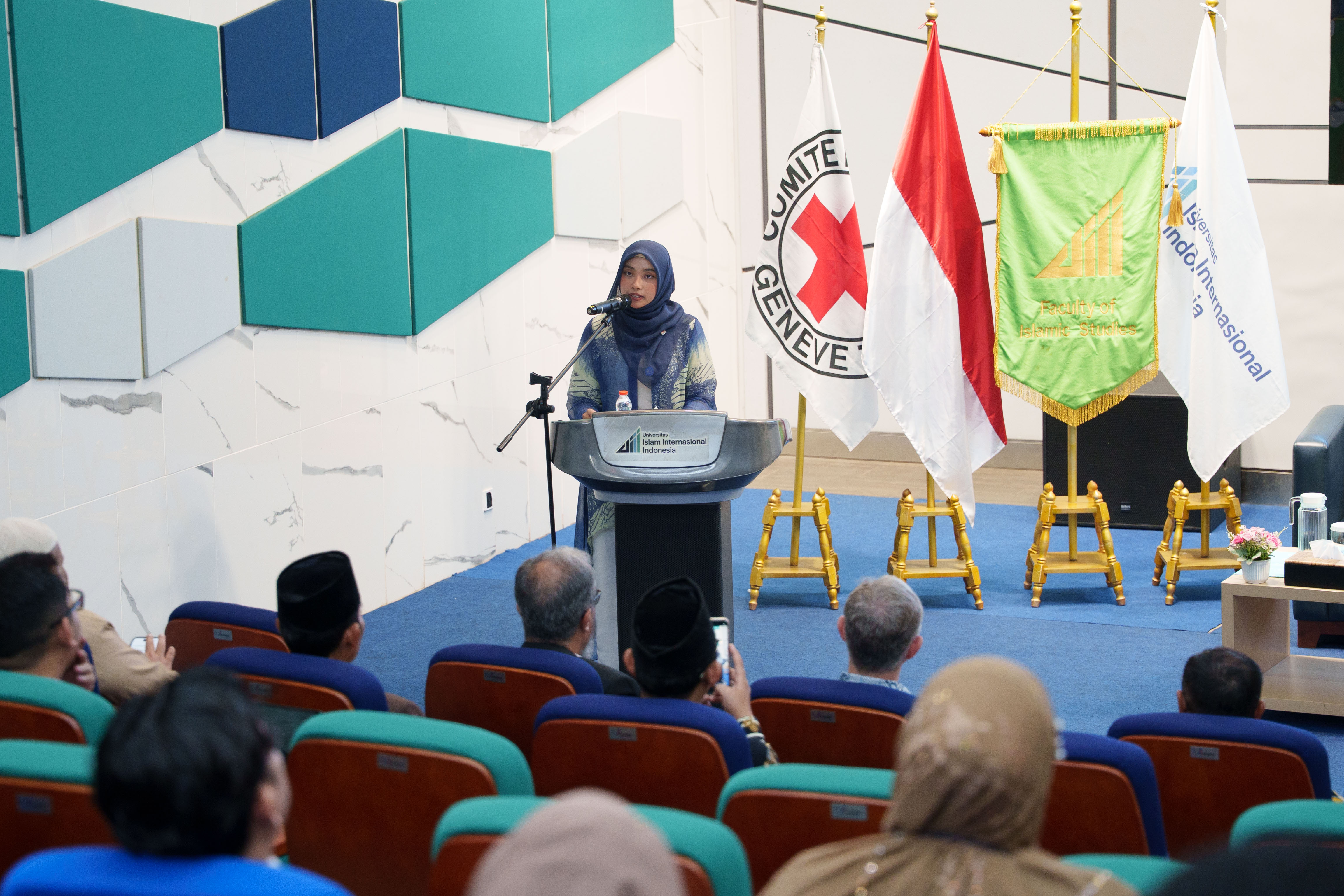 The 8th Certificate Course represents a renewed call for academic collaboration and humanitarian engagement. Over the four days, participants are expected to take part in lectures, discussions, and case studies led by international experts, examining how Islamic jurisprudence and humanitarian law can jointly address the ethical and legal dimensions of modern conflict. The course once again reaffirmed the shared commitment of UIII, ICRC, and INSANIA to advancing education that bridges knowledge with compassion and promotes peace grounded in both faith and humanity.
The 8th Certificate Course represents a renewed call for academic collaboration and humanitarian engagement. Over the four days, participants are expected to take part in lectures, discussions, and case studies led by international experts, examining how Islamic jurisprudence and humanitarian law can jointly address the ethical and legal dimensions of modern conflict. The course once again reaffirmed the shared commitment of UIII, ICRC, and INSANIA to advancing education that bridges knowledge with compassion and promotes peace grounded in both faith and humanity.
Universitas Islam Internasional Indonesia